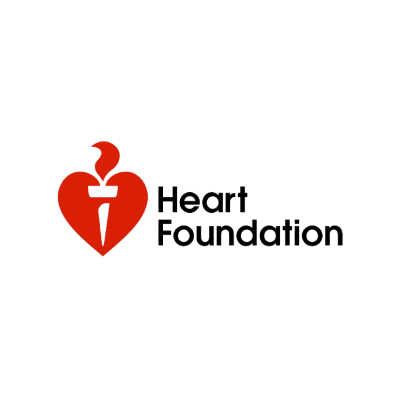Stop eating so little
‘Eat less, move more’
[Read Time: 7 Min]
‘Eat less, move more’
A statement I’m sure we’ve all heard before, reduce our food intake, increase our exercise, makes sense for us wanting to lose weight right?
In theory, it’s correct, we need to enter a state of negative energy balance (eating less energy than we are expending) to lose weight, no matter the specific type of diet we’re following.
However, the degree to how much we reduce our energy intake, will significantly influence our progress. Eating too little can be physically, mentally and socially dangerous. Here’s why.
- Calorie calculators or cookie cutter diet programs don’t know you individually
Enter your height and weight, age, maybe it’ll ask for an estimate of your physical activity level, and it shoots out a Calorie target for you. Sound familiar?
Maybe the diet didn’t ask anything about you, and just told you to eat 1200 Calories no matter what. God if only my girlfriend knew me that well without taking me to dinner first…
The amount of energy we require is HIGHLY INDIVIDUALLY DEPENDENT, no matter whether we are trying to lose, maintain, or gain weight. The values which online or app-based calculators give you are ESTIMATES ONLY, and may not be anywhere near as accurate as you think.
Most of the energy you eat (50-70%) is burnt via your basal metabolic rate (BMR) (the amount of energy your body would need to survive if it was to lay in bed all day). The rest is burnt through your physical activity (~20-30%), and food digestion (~5%). Therefore, you need a certain amount of energy intake just to survive everyday, before you even think about doing any exercise.
The problem with these loosely set Calorie targets, is that they may (and often), are way too little food for us.
When we give our bodies less food than they are used to and/or increase our exercise, our body gets uncomfortable, it wants to find ‘normality’ again. How does it do this? It makes you seek more food (you get hungrier), be less active (you don’t spontaneously move around as much, and you may not push yourself as ‘hard’ as you normally could), and also decreases its baseline energy expenditure. If you drastically reduce your intake far too low, you are more likely to experience far greater excess levels of hunger, and may end up rebounding by over-eating, gaining all of the weight back which you have just lost. This merry-go round is called ‘yo-yo’ dieting.
Key takeaway: If you restrict your intake significantly, you may lose weight quickly, but you are almost certain to rebound just as hard, gaining all, if not more weight back. Slow weight loss, eating more than you may think you should, is the safest way to go. Be patient and trust the process.
- Social and mental friction
Your 1200 Calorie diet is going ‘great’, you plan all of your meals to a tee, in the comfort of your own home from Monday-Friday. Yay!
What happens when your friends want to go out for brunch Saturday/Sunday morning?
What happens when your partner wants to take you on a romantic weekend dinner?
What happens at your cousin’s birthday party?
Nobody wants to be the person bringing their Tupperware container of boiled broccoli and grilled basa to a party or restaurant. At least I don’t want to be anyway….
Food is more than numbers, food is more than a weight loss/gain tool, food is not something to feel guilty about or have moral values attached to.
Do we want to be sensible, and moderated in our weekend decisions surrounding treat-eating, when on a weight loss journey? Absolutely- I am by no means asking you to neglect your goals on the weekends.
However, I also implore you to recognise how socially and mentally unhealthy it is to deprive yourself of some treat foods at functions out of home, let alone implore you to not avoid social outings purely because of your diet. The latter may be an outcome of strict, ridiculously low Calorie diet plans, especially if we get overly mentally attached to it.
Furthermore, if you have restricted yourself all week on a very low-Calorie diet plan, being exposed to treat foods may open up an opportunity to binge. When your body is physically and mentally hungry, being exposed to sugar and fat rich treat foods will be very hard to hold yourself back from. Binges can create toxic cycles of guilt, and shame, which similar to yo-yo dieting, can begin a recurring cycle:
Restrict → Binge → guilt, shame → restrict → binge → guilt, shame (repeat)
This is not a place where we want to be.
Key takeaway: Excessively low food intake on very low Calorie diets may impede you from wanting, or even deciding to socialise with friends, family and partners. This is socially and mentally unhealthy, and is very unsustainable. Being exposed to treat foods in a social setting after restricting food intake may result in a toxic, repeating binge/guilt/restrict cycle.
- Long term ramifications
If we restrict our food intake too much, for too long, our body and mental relationship with food will likely end up suffering.
Excessive food deprivation and weight loss can result in adversities including, but not limited to:
- Muscle loss
- Reduced immune function
- Reduced libido
- Loss of bone density
- Nutrient inadequacies and deficiencies
- Reduction in ability to focus, think rationally and problem solve
- Reduced sleep quality
In addition to the physical ailments above, prolonged excessive dieting may lead to the progressive development of disordered eating behaviours, and potentially a full eating disorder. These are serious health and at times, life threatening mental illnesses.
Key takeaway: If we deprive our bodies of sufficient food for too long, we are at increased risk of suffering from physical adversities and illnesses, and may increase our risk of developing disordered eating. It’s important we gain professional help when trying to lose weight from the very beginning, to prevent ourselves exposing ourselves to the above risks.
SUMMARY
When trying to lose weight, a dietitian or nutritionist and an experienced personal trainer like us at Get Going, will help you put together a healthy, balanced overall lifestyle approach to promote slow, steady, SUSTAINABLE weight loss.
Stop wasting your time on 1200 Calorie, fad or shake-diets.
As dorky as the cliche is, it definitely applies to weight loss, if you want to keep the weight off for good:
‘Slow and steady wins the race’.
If you or somebody you know is struggling mentally around food on a weight loss journey, or have started to develop what you believe to be disordered eating habits, reach out for help as soon as possible, you are not alone:













